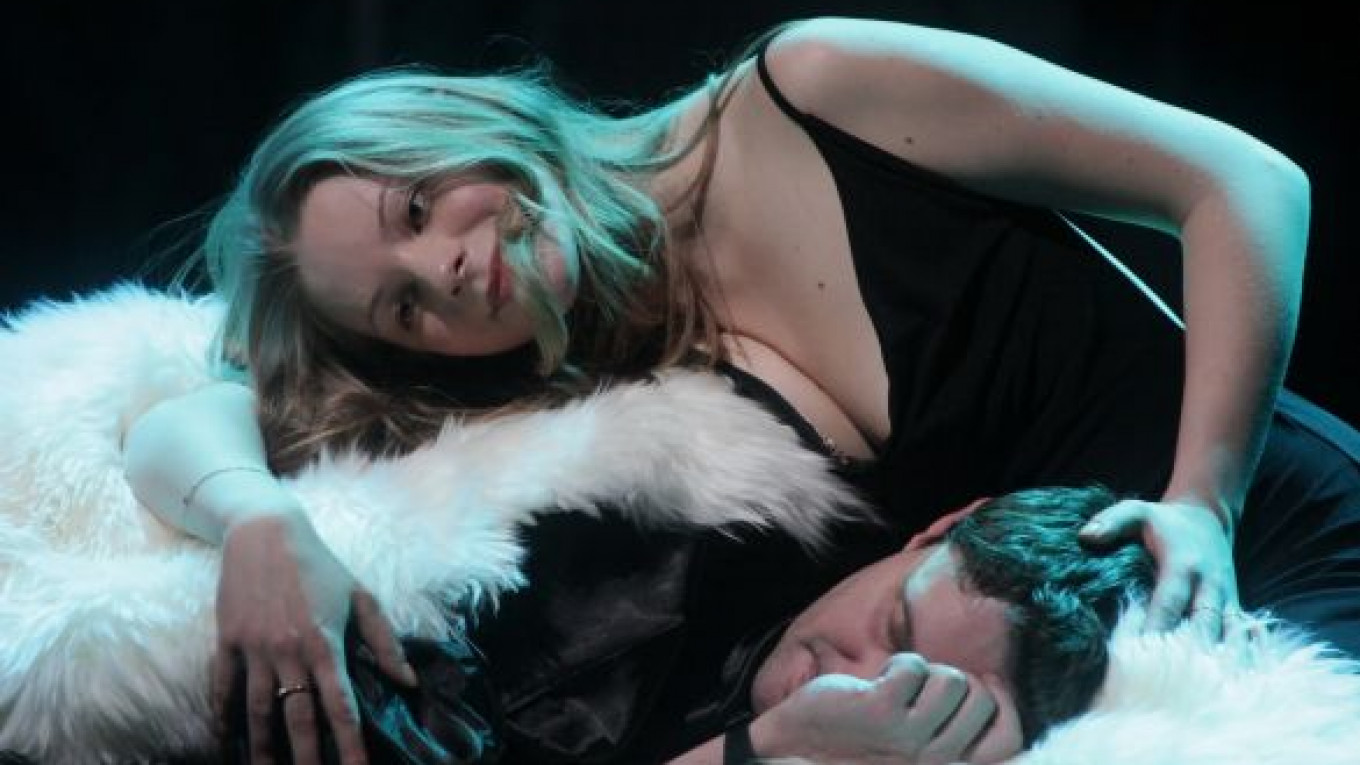It was one of the unwritten rules at the Playwright and Director Center that Alexei Kazantsev left the creative work at his theater to the young people he struggled to support.
As the venue's founder and artistic director he pretty much controlled whatever happened there.
He determined what plays would or would not be staged, just as he decided what directors would work for him or not.
Of course, he took into account the advice of his staff, but if Kazantsev was skeptical of something, most everybody else was too.
And yet Kazantsev never used his theater, which grew from its infancy in 1998 into one of Russia's most influential playhouses by the early 2000s, to further his own work.
Never did it mount any of the dozen or so plays he wrote, and even as a director he stayed out of things until nearly the end.
It is one of those twists of fate that when he did resolve to stage a play himself in 2005 — Alexander Sukhovo-Kobylin's "The Death of Tarelkin" — it was his last. He died two years later after just beginning rehearsals on the next play he was to direct — Henrik Ibsen's "Peer Gynt."
All this means that Vladimir Ageyev's production of "Yevgenia's Dreams" at the theater is a milestone and a homecoming. The play was originally written by Kazantsev in the late 1980s and first produced in the early 1990s at the Stanislavsky Theater.
This is the first time that a play by Kazantsev has been staged at the venue that is popularly known as "the Kazantsev Center."
It is easy to see what drew Ageyev to it.
Ageyev, who began his own rise to prominence by staging such major contemporary Russian writers as the Presnyakov brothers and Yury Klavdiyev at the Playwright and Director Center, has an affinity for things mystical. And much, if not all, of what happens in "Yevgenia's Dreams" takes place in some sphere off-center from reality.
Yevgenia (Anna Senina) is a young woman who does not fit into a family that is dominated by a barking father (Alexei Bagdasarov) and a shrill mother (Olga Lapshina), whose views of life hover around the notions of having ample sausage on hand and doing the socially proper thing.
Dressed by designer Marina Filatova as crumbling statues in granite gray suits, the whole family speaks in empty, set phrases that strongly suggest they may not possess minds of their own.
Yevgenia, on the other hand, first appears as a very different kind of statue — a dreamy monument to wisdom and sensitivity who towers over everyone in her chiffon dress. Staring out a small, high window, beyond which a cold, lonely Russian snow falls throughout the entire performance, she utters phrases that demonstrate her kinship with nature and her innate understanding of the value of paradox in the human experience.
To her own surprise and her family's horror, Yevgenia begins producing long pages of dialogue that grow into a play called "Yevgenia's Dreams." Her parents are unable to weather the shame this brings on them and they resolve to commit their daughter to an insane asylum.
Yevgenia's dreams — by which I mean the scenes of the play she imagines — involve various odd acquaintances, including a romantic encounter with a married neighbor and several sessions with an unorthodox psychiatrist (Artyom Smola), who is something of a sexual healer and jailer all in one.
Performing the figure of the Radio, which constantly delivers bad news to the household, is Alexander Usov. He gives the role a hard-edged, eccentric and often hilarious turn that can be ominous, such as during a scene when three social misfits are executed time and again, and come back to life each time as if their kind is an eternal element of Russian life.
"I stole, I steal and I will always steal," mutters one defiantly before he is gunned down the first time.
"Yevgenia's Dreams" is very much a play written in the Soviet era, and Ageyev and his company purposefully made little effort to recalibrate it for modern times. This gives us an interesting chance to ponder what has changed in Russia over the last two decades and what has not.
It is appropriate that such an opportunity is delivered to us in a play by Kazantsev, one of the most important engineers of change in Russian theater of the last two decades.
"Yevgenia's Dreams" (Sny Yevgenii) plays Feb. 21 and 22 at 8 p.m. at the Playwright and Director Center, located at 5 Begovaya Ulitsa. Metro Begovaya. Tel. 945-3245, www.cdr.theatre.ru. Running time: 2 hours, 40 minutes.
A Message from The Moscow Times:
Dear readers,
We are facing unprecedented challenges. Russia's Prosecutor General's Office has designated The Moscow Times as an "undesirable" organization, criminalizing our work and putting our staff at risk of prosecution. This follows our earlier unjust labeling as a "foreign agent."
These actions are direct attempts to silence independent journalism in Russia. The authorities claim our work "discredits the decisions of the Russian leadership." We see things differently: we strive to provide accurate, unbiased reporting on Russia.
We, the journalists of The Moscow Times, refuse to be silenced. But to continue our work, we need your help.
Your support, no matter how small, makes a world of difference. If you can, please support us monthly starting from just $2. It's quick to set up, and every contribution makes a significant impact.
By supporting The Moscow Times, you're defending open, independent journalism in the face of repression. Thank you for standing with us.
Remind me later.







